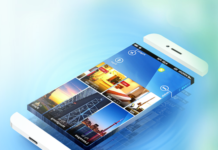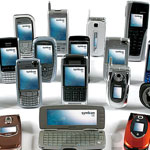With announcements about Microsoft’s new Windows 7 operating system promising a higher level of integration between mobile and traditional computing devices, many users are scratching their heads. Sure, mobile phones are great and have their value in literally thousands of computing applications — but do we really want desktop computers to become more like mobile phones? For many users, the answer is a firm “No!”
Many casual and “power users” want their mobile phone to act more like a desktop PC, not the other way around. No matter how convenient or even ubiquitous mobile phones become, they are unlikely to replace desktop PCs until they experience quantum leaps in usability. Why is this the case?
Why aren’t more people rushing to embrace the concept of distributed computing and collaboration via mobile phone?
Reliability
Whatever might be said in praise of the wireless Internet, no one can claim it is as reliable as a hardwired connection. This isn’t the only area of a standard smartphone where we have grown accustomed to expecting much lower performance than we would expect from PCs, but it is perhaps the most obvious one.
Reliability is an issue that creeps into every area of a technology’s profile. Mobile devices like Droid smartphones are notoriously sensitive and difficult to diagnose, troubleshoot and debug. This makes it more difficult for end users to keep them in working condition and renders the tech community hogtied.
Safety
This is another area where mobile devices suffer from their association with Wi-Fi. Even computer novices are coming to the conclusion it’s much easier to hack a smartphone than an ordinary computer. Sensitive financial and personal information transmitted over wireless connections may be stolen practically at will.
Combine this with the safety hazards inherent in an expensive, portable device that may be discreetly removed from the owner’s possession and you have a serious double whammy. If a phone or tablet is lost, untold damage could be done before service is cut off and sensitive data can be recovered or secured — if even possible.
Portability Isn’t Always Important
Droid phones and devices like them sell heavily on the idea that portability is a necessary virtue for any computer of the future. Truth be told, though, it’s not always important that computing power — or even data itself — be portable. Although there is a segment of the business community that relies heavily on portability, it is not as important to the average user that a phone be a complete PC replacement.
Rather than portability, many users are concerned with usability — each of these factors can easily be sacrificed in favor of the other, but few devices offer a good balance of both. The smaller screens, touchpads, and keyboards inherent in portable devices make them harder to use, especially among people with poor eyesight or low thumb dexterity. If a device is unusable, it doesn’t even matter how convenient it is!
What This All Translates To
Integration is the Way to Go Maybe PCs shouldn’t become more like mobile phones, but Microsoft has one thing right: Integration between devices is key. Despite the general enthusiasm for mobile devices, they have limitations — simply within the nature of what they are and can do — that they may never be able to overcome.
Ensuring that devices work effectively together means users won’t have to settle for “one (small) size fits all” solutions to their needs.
This article was written by Karl Stockton for the team at Center Networks. Click http://www.centernetworks.com/godaddy-review/ for their godaddy review.




